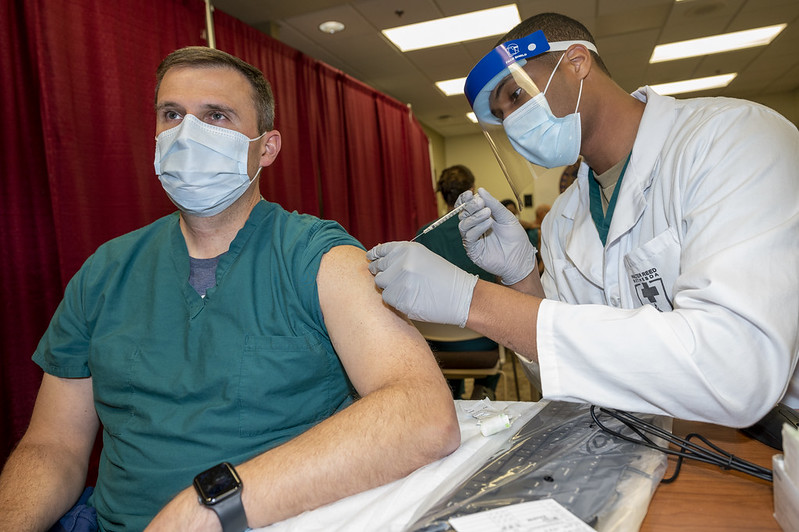 View Winners →
View Winners → 
The first U.S. case of the new Omicron variant of COVID-19 was confirmed in San Francisco, federal and state health officials said Wednesday, confirming the belief that the newly designated “variant of concern” first identified in South Africa was already present domestically.
There are still no confirmed cases of the Omicron variant in Southern California.
Dr. Anthony Fauci, director of the National Institute of Allergy and Infectious Diseases, told reporters at the White House Wednesday the patient who tested positive was a traveler who returned from South Africa on Nov. 22 and tested positive on Monday. The unidentified person was fully vaccinated against COVID and experienced “mild symptoms” that were improving, Fauci said.
The person was in quarantine, and all close contacts have been contacted and all tested negative, according to Fauci.
“We knew that it was just a matter of time before the first case of Omicron would be detected in the United States,” Fauci said.
On Twitter, Gov. Gavin Newsom said the Omicron variant is likely present in other states in addition to California.
“There’s no reason to panic — but we should remain vigilant,” Newsom wrote. “That means get vaccinated. Get boosted. Wear a mask indoors.”
The Omicron variant was identified as a “variant of concern” by the World Health Organization on Friday after it was identified as responsible for surging COVID case numbers in South Africa. The variant is believed to spread more easily due to its large number of mutations, but research is still being done to determine if it is more resistant to existing vaccines and could lead to more serious illness.
The California and San Francisco departments of public health issued a joint statement in response to the Omicron case, saying: “We must remain vigilant against this variant, but it is not a cause for panic. To help detect and prevent the spread of this new variant, the state of California is increasing COVID-19 testing at our airports for arrivals from countries identified by the Centers for Disease Control and Prevention. We recognize that everyone is exhausted, and the news of a new variant can be overwhelming. It is important that we collectively focus on the things we know prevent the spread of COVID-19, and its variants. Individuals should (1) get vaccinated and boosted; (2) wear your mask in indoor settings; (3) get tested if you have symptoms; and (4) stay home if you are sick.”








































































































